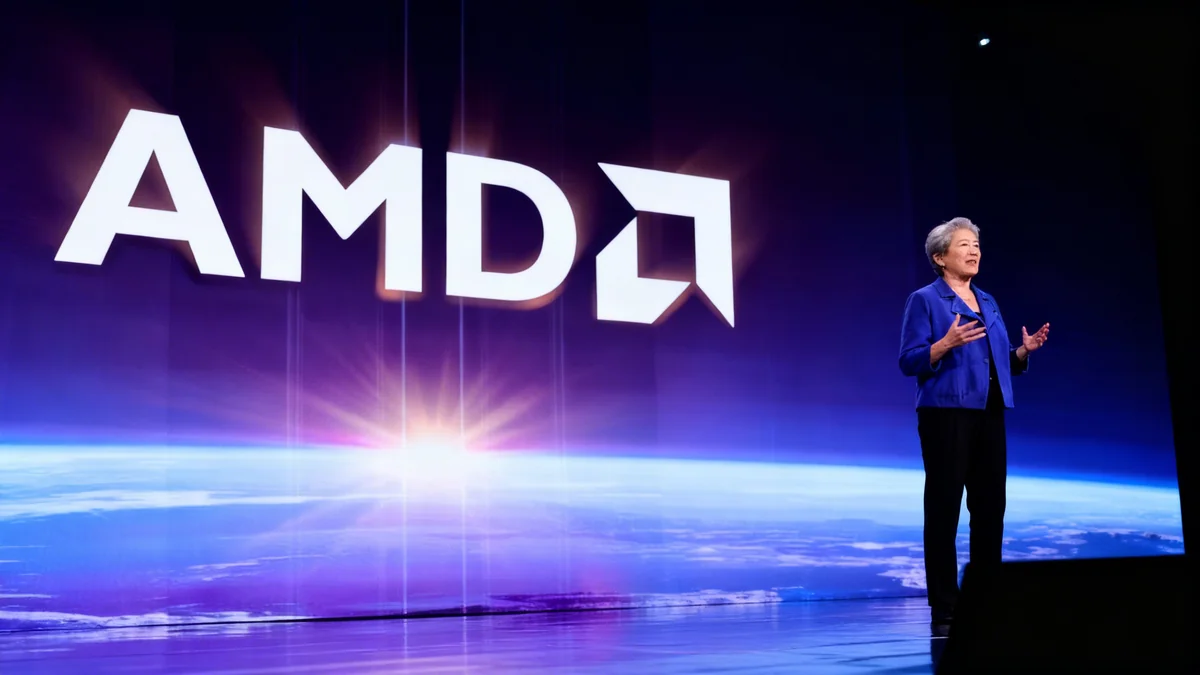The AI search startup Perplexity is experiencing a dramatic surge in investor interest, with its valuation climbing at a breakneck pace over the past several months. The rapid succession of funding offers, some reportedly valuing the company as high as $50 billion, highlights both the intense excitement and growing concerns surrounding the artificial intelligence market.
Just three years old, the company challenging Google's dominance in search has become a focal point for venture capitalists, fueling a debate about whether the current AI investment climate is sustainable or indicative of a new tech bubble.
Key Takeaways
- AI search startup Perplexity has seen its valuation climb from $14 billion to $20 billion in a matter of months.
- The company has reportedly received informal investment offers valuing it as high as $50 billion.
- With over $150 million in annual recurring revenue, its valuation multiple exceeds 100x, raising concerns among some investors.
- The rapid fundraising reflects a broader trend of aggressive investment in the AI sector, driven by fear of missing out (FOMO).
An Unprecedented Fundraising Pace
In the fast-moving world of AI, funding rounds are no longer an annual affair. Perplexity exemplifies this new reality, securing fresh capital in rapid-fire succession. The company's valuation has seen a dramatic ascent, starting at $14 billion before quickly jumping to $18 billion and then $20 billion in subsequent funding discussions.
The demand appears to be intensifying. According to sources close to the company, Perplexity has fielded offers from external investors that place its valuation as high as $50 billion. While the seriousness of these offers has not been confirmed, they signal a level of market enthusiasm that is becoming characteristic of the AI sector.
"The demand to invest in that company is beyond anything that we've seen in our history," one current Perplexity investor noted, highlighting the intense competition among venture firms to gain a stake in promising AI ventures.
By The Numbers
Perplexity's annual recurring revenue (ARR) reached over $150 million by mid-2025, a fourfold increase from the previous year. Despite this rapid growth, its $20 billion valuation represents a revenue multiple exceeding 100x.
Investor Excitement and Market Concerns
The frenzy around Perplexity is fueled by the colossal valuations of AI leaders like OpenAI, which was recently valued at $500 billion. This creates a high benchmark that lifts the valuations of other companies in the space. However, it also stokes fears of a market bubble.
Investors face a difficult choice. On one hand, the fear of missing out on what could be the next foundational technology company is immense. On the other, the soaring valuations make it harder for startups to achieve a successful acquisition or public offering that justifies the price.
"The benchmarking inevitably takes place in founders' minds and in investors' minds, and it's kind of hard to escape that," said Kevin Spain, a partner at Emergence Capital. "If other comparable companies are raising at a certain price, that is going to be the expectation."
This dynamic creates a conflict, especially for later-stage investors. Terrence Rohan, managing director of Otherwise Fund, explained the internal debate that can arise when a portfolio company's valuation outpaces a firm's conviction. "We need to commit another $50 million just to hold our ownership... And if we don't, we could look silly," he said.
An Aggressive and Unconventional Strategy
Perplexity has pursued a bold strategy to build its brand and capture market share. The company offers a consumer-facing search engine with both free and paid tiers, and has expanded into enterprise solutions with partners like Zoom and Nvidia, which is also an investor.
The company has also made headlines with audacious, high-profile moves. In July, it announced a $34.5 billion bid to acquire Google's Chrome browser. Earlier in the year, it submitted a proposal to merge with TikTok. While many analysts dismissed these as publicity stunts, the company insists they were serious offers.
Defending the Chrome Bid
Perplexity's head of communication, Jesse Dwyer, pushed back on the idea that its bid for Google Chrome was a marketing tactic. "The reality is this was a very serious offer," he stated, explaining that the company felt it was a matter of integrity to share the offer publicly due to the ongoing antitrust trial involving Google.
CEO Aravind Srinivas has also adopted an unconventional approach to fundraising, reportedly forgoing traditional pitch decks. "I just write a memo and I tell them you can do a Q&A and ask whatever you want," Srinivas said in a recent interview. "Anything else that is not internal data, you can ask Perplexity. Like, it already knows everything."
Redefining Investment Norms
The rise of AI is challenging long-held standards for startup valuation. After the venture boom of 2021, valuation-to-revenue ratios for many tech companies fell to single digits. AI has flipped that standard on its head, with companies like Perplexity commanding multiples well over 100x.
Perplexity's recent decision to make its AI browser, Comet, free could further stretch that multiple by impacting short-term revenue. The company positioned the move as a way to help users combat low-quality, AI-generated content online and as a clear attempt to gain users from Google.
With no plans for an IPO before 2028, according to Srinivas, Perplexity has a long runway. Investors are betting that the transformative potential of AI justifies these unprecedented valuations. The belief is that the eventual market exits for top AI companies could be larger than anything seen before.
"In this era, there's a belief that we might see exit valuations unlike any we've ever seen," said Spain. This perspective is driving investors to reconsider what a "reasonable" valuation is in an age where AI could fundamentally reshape entire industries.





